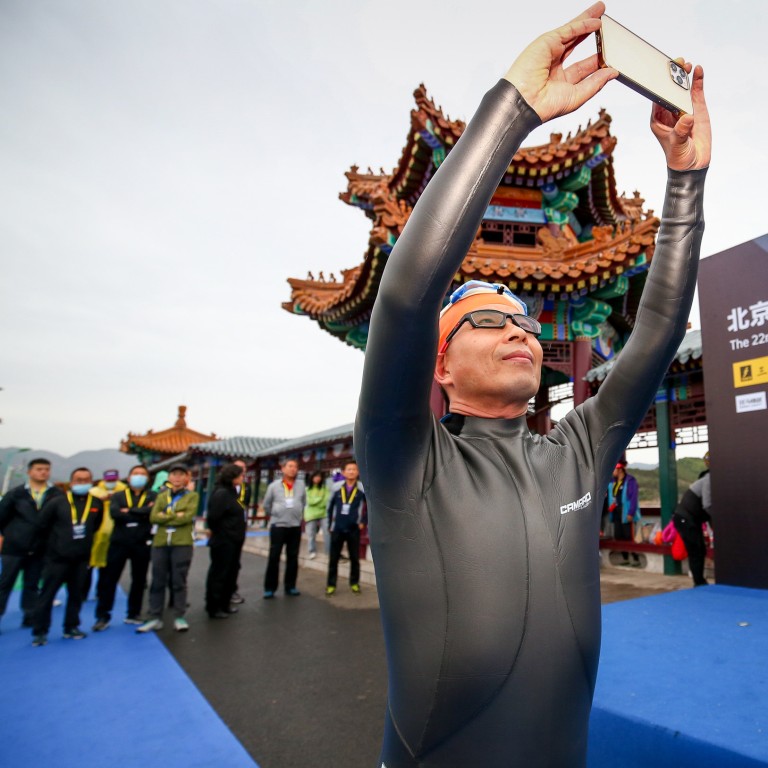
Nature lover bet on his fellow Chinese getting into outdoor sports 25 years ago. Today his brand Sanfo has annual sales of US$70 million
- A failed start-up triggered Zhang Heng’s search for a new venture, and he picked outdoor adventure and sports equipment. His company now has 60 outlets in China
- A triathlete with an interest in multiple sports, he wears his brand Sanfo’s products and say his experience helps him understand customers’ needs
The business career of Chinese triathlete and outdoor sportsman Zhang Heng, 51, is the embodiment of psychologist Marsha Sinetar’s saying, “Do what you love, the money will follow”.
When Zhang’s technology start-up folded in 1997, it left him 270,000 yuan in debt. Not knowing what to do next, he set off for Tibet for three months to explore and to consider his options. There, the idea of setting up a nature-related business came to him.
Zhang borrowed 30,000 yuan from his family and set up Beijing Sanfo Outdoor Products near Peking University, in Beijing, that same year. That first store no longer exists, but his business empire now operates 60 others in China.
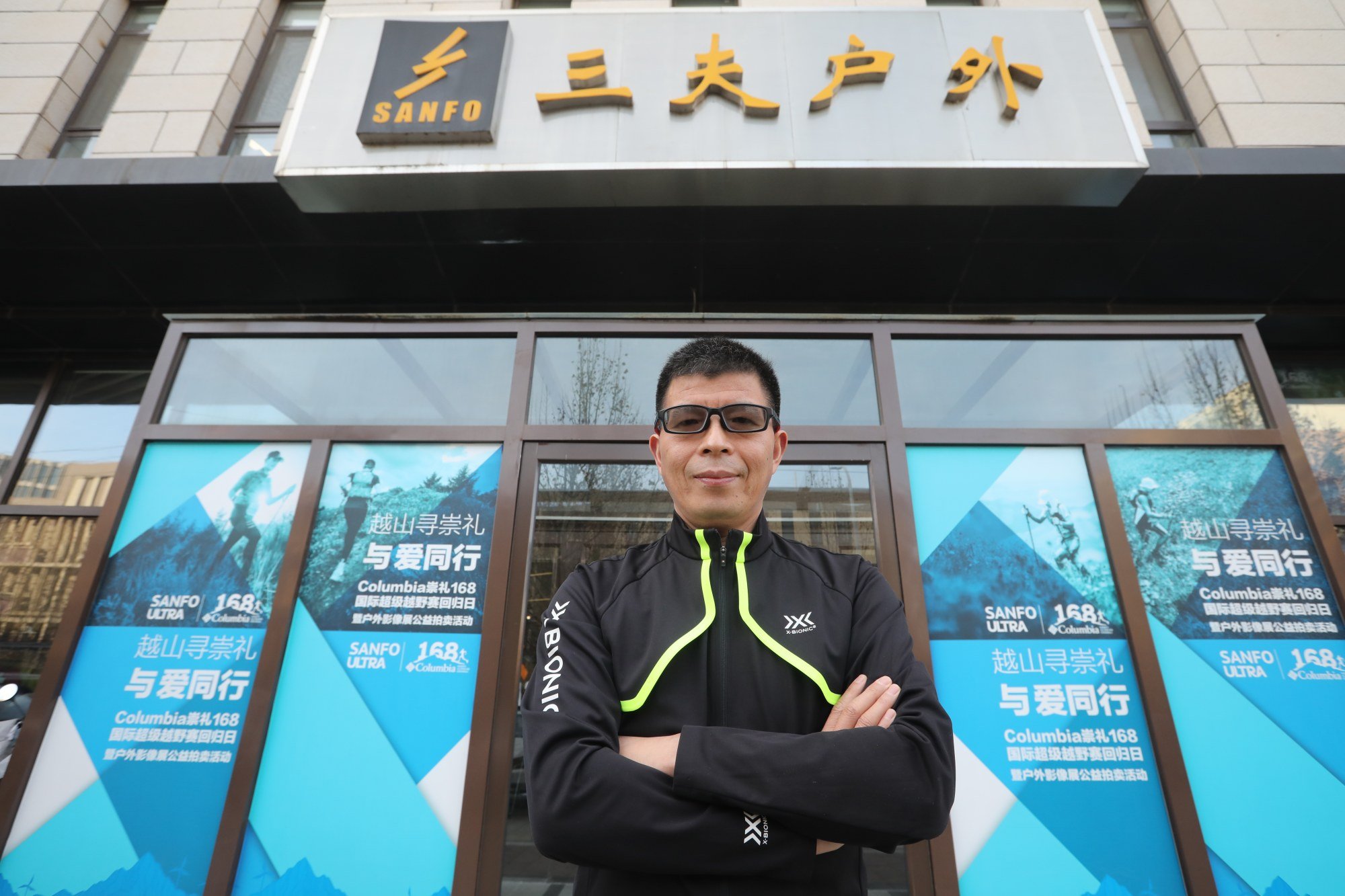
Of the 300 brands it stocks, 10 are sold exclusively at Sanfo, and it designs and manufactures two of them – Sanfo Plus and X-Bionic. The latter is a high-end Swiss functional clothing brand; Zhang bought the rights to make and sell its clothes in China at a cost of nearly 100 million yuan (US$15.7 million) after more than two years of negotiations.
“Many top-rated skiers, shooters, trail runners and triathletes use the brand’s products,” he says. A new X-Bionic shop was about to open in a shopping centre in Beijing when Zhang talked to the Post.
Zhang says he wears X-Bionic shirts on his own trail runs to protect him from extreme weather.
“I use these shirts for races where I am exposed to big temperature swings, with morning and night temperatures nearing zero degrees Celsius [32 degrees Fahrenheit] and noon resembling desert conditions.”
Why Yangshuo is the best place to go rock climbing in China
Zhang first sought the rights to sell the Swiss brand in China in 2018.
“X-Bionic has more than 800 patents globally,” he says. “For example, its product development team studies how animals can reduce their body heat in the desert and how they keep warm in freezing regions.
I go out of my way to do exercise every day. There was a time when I ran every day, but I’ve recently turned to playing [table tennis] daily.
Zhang grew up in a farming village in Henan province, central China, and spent much time in nearby fields and beside rivers. Selling sporting equipment for a living allows Zhang to indulge his passion for nature as an adult.
“I love nature. When I am happy or upset, I always turn to [it],” he says.
“People [in China] then didn’t have much concept of outdoor equipment. I had to pull a cart through rich neighbourhoods and universities to do mobile promotion and sales.”
German family brings full distance triathlons to China
To build up a client base, Sanfo organised its first outdoor activity – camping at the Great Wall in Beijing – in 1998. “Over 20 people took part. They bought equipment like tents and sleeping bags from us,” he recalls.
As business picked up, the company moved out of its hole-in-the-wall premises and into a main street shop on Madian Bridge in Beijing in 2001, where it still operates.
Zhang’s first milestone came in 2007, when Sanfo attracted more than 20 million yuan in outside investment.
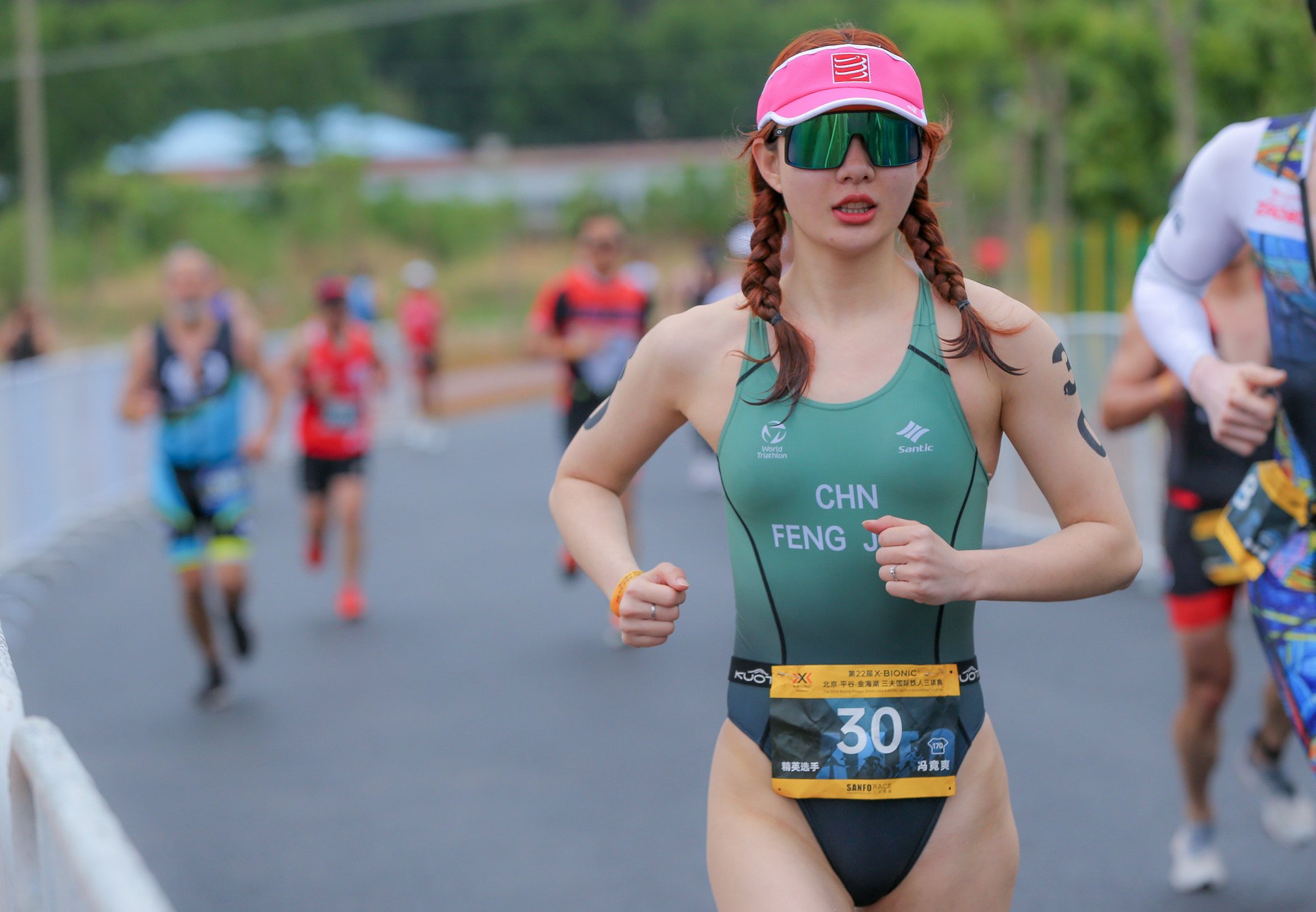
As more sports enthusiasts took part in the company’s outings, the Sanfo Outdoor Club was formed. Its membership grew in lockstep with the number of new Sanfo shops, and the club now has about 1 million members.
“Sanfo’s 22nd triathlon this year in Beijing had over 1,000 athletes. I was one of them,” he says.
Recently, because of the Covid-19 pandemic, a trail running event in Chongli, a district of Zhangjiakou in Hebei province, which more than 9,000 runners had entered, could not go ahead. The race instead became a semi-virtual one: people taking part ran on their own and reported their performances online.
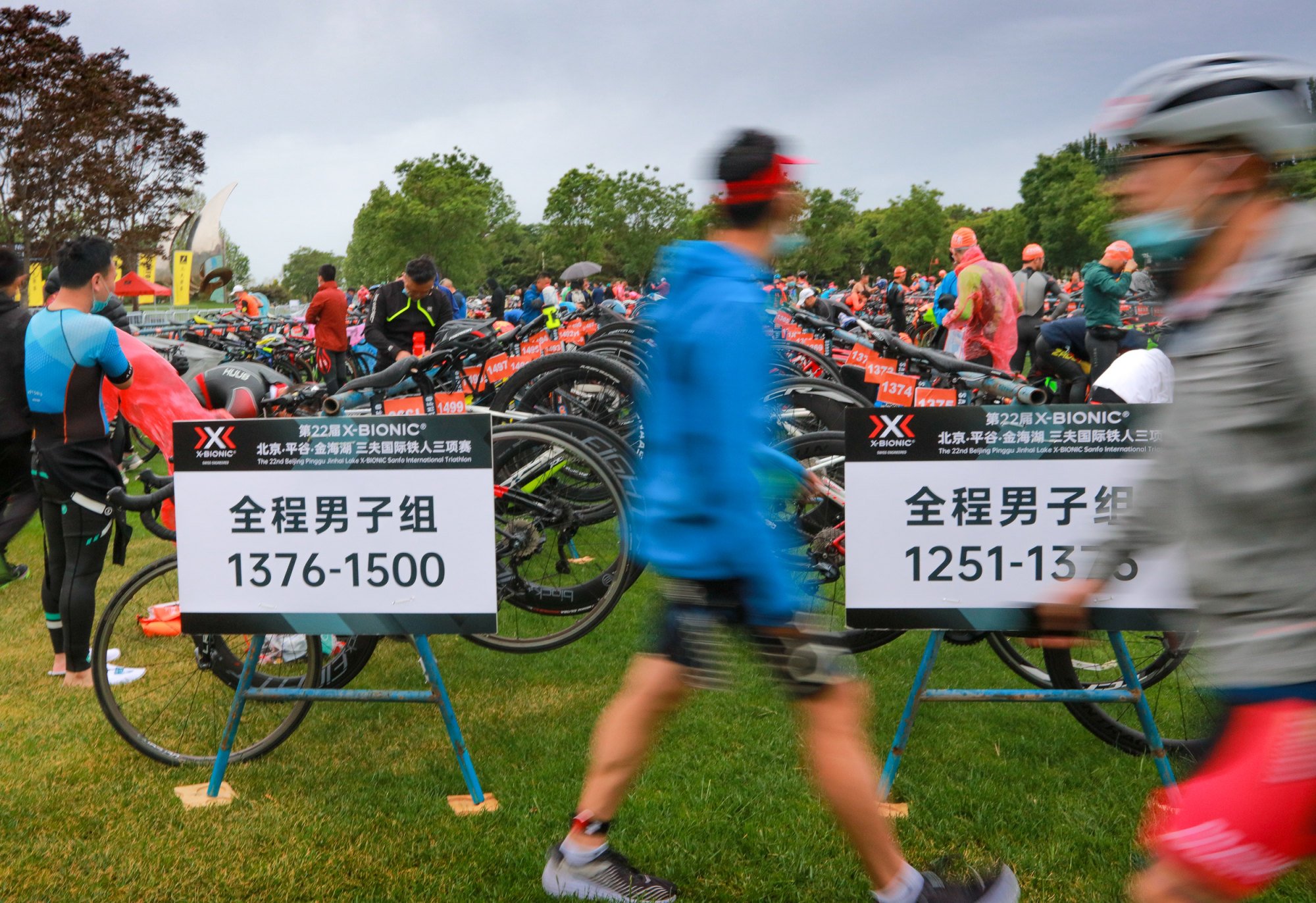
“There were more than 7,000 contestants in last year’s [virtual] race,” Zhang says. “I hope it can be resumed [this] year. With probably over 10,000 contestants, [this] year’s competition might become the biggest of its kind in the world.”
Zhang is a passionate fan of many sports – including skiing, running, mountain climbing and surfing – and his experience helps him to understand his customers’ needs.
“I often join competitions organised by Sanfo. I go out of my way to do exercise every day. There was a time when I ran every day, but I’ve recently turned to playing [table tennis] daily.

“When I am on business trips overseas, I will take part in outdoor events. Sometimes, I run with foreigners in the morning. They are usually surprised at my running ability,” he says.
“My goals are to exercise daily and keep my weight under control. If my weight exceeds a certain level, I will increase my exercise.”
Meditation: a Silicon Valley executive’s secret to success
His long love affair with physical training has, he says, boosted his resilience, confidence and ability to tackle setbacks.
“I try to be eco-friendly as I dislike waste. I try to live a simple life. When living in hotels, I bring my own toothbrush and toothpaste and avoid using disposable items,” he says. “I apply this philosophy to my business. Sanfo organises rubbish-clearing events, for which people need only pay a transport fee to take part in.”
Besides its retail business, Sanfo operates a handful of family sports theme parks under the name Squirrel Tribe Forest Holiday Park, which boast sprawling greenery and exciting rides.
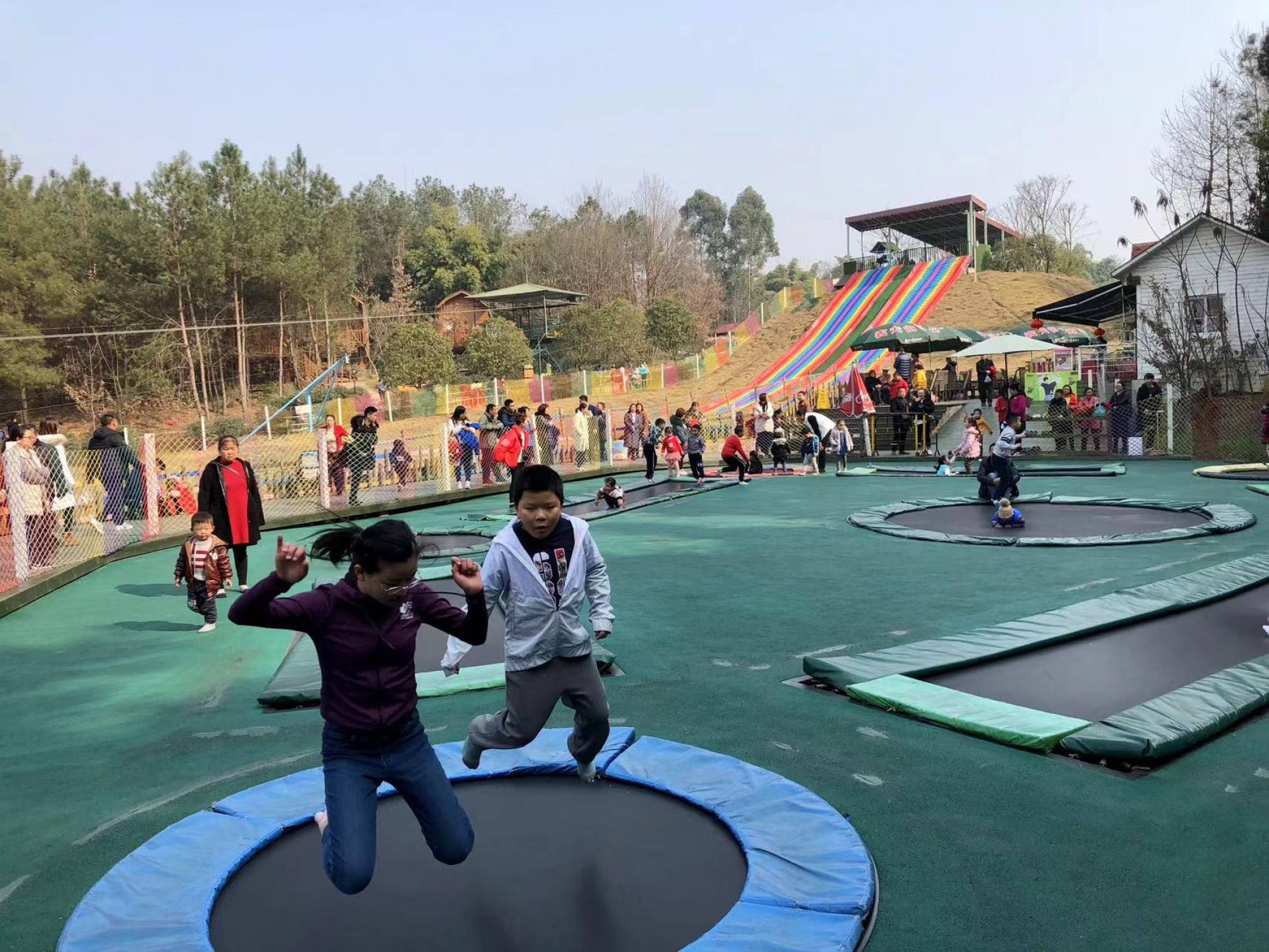
“We hope the parks can get the kids away from their digital screens. We will soon set up a safety education zone at our Nanjing park. Kids can experience disaster simulation there, such as earthquakes and severe turbulence on an aeroplane. They can learn about disaster preparedness which is not taught in class.
“In China, around five to 10 per cent of our population take part in outdoor activity, as compared to around 50 per cent in America and around 60 per cent in Northern Europe,” he adds.
“With extreme sports gaining popularity in China, there’s still much room for our growth.”

